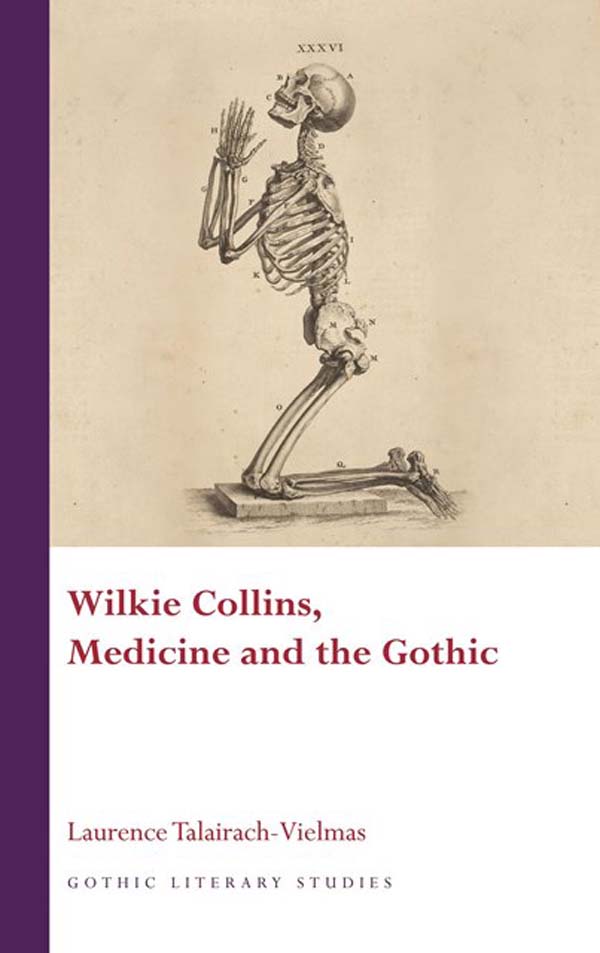Wilkie Collins, Medicine and the Gothic
Author(s) Laurence Talairach
Language: English
Genre(s): Literary Criticism
Series: Gothic Literary Studies
- September 2009 · 224 pages ·216x138mm
- · Hardback - 9780708322239
- · eBook - pdf - 9780708322826
- · eBook - epub - 9781783163731
This book examines how Wilkie Collins's interest in medical matters developed in his writing through explorations of his revisions of the late eighteenth century Gothic novel, from his first sensation novels to his last novels of the 1880s. Throughout his career, Collins made changes in the prototypical Gothic scenario. The aristocratic villains, victimized maidens and medieval castles of classic Gothic tales were reworked and adapted to thrill his Victorian readership. With the advances of neuroscience and the development of criminology as a significant backdrop to most of his novels, Collins drew upon contemporary anxieties and used the medical more and more to propel his criminal plots. While the archetypal castles were turned into modern medical institutions, his heroines no longer feared ghosts but the scientist's knife. This study underlines the way in which Collins's Gothic adaptations increasingly tackled medical questions, using the medical terrain to capitalize on the readers' fears. It demonstrates how Wilkie Collins's fiction revised Gothic themes and presented them through the prism of contemporary scientific, medical and psychological discourses, from debates revolving around mental physiology to those dealing with heredity and transmission. The book's structure is chronological, covering a selection of texts in each chapter; with a balance between discussion of the more canonical of Collins's texts, such as The Woman in White, The Moonstone and Armadale, and some of his more neglected writings.
'Wilkie Collins, Medicine and the Gothic sheds new light on the position of criminality, the physical body, and the mind in Collins's work through a thorough examination of contemporary medicine and its newly gothicised nature. The work is a good starting point for anyone interested in reading Collins's novels for their criminal plots, examining the texts closely whilst implementing interdisciplinary scholarship, a burgeoning and important area of research in the study of Collins's fiction. Talairach-Vielmas's work is both interesting and readable, providing a focused study that examines exactly what it promises in the title.' Verity Burke, The British Society for Literature and Science


